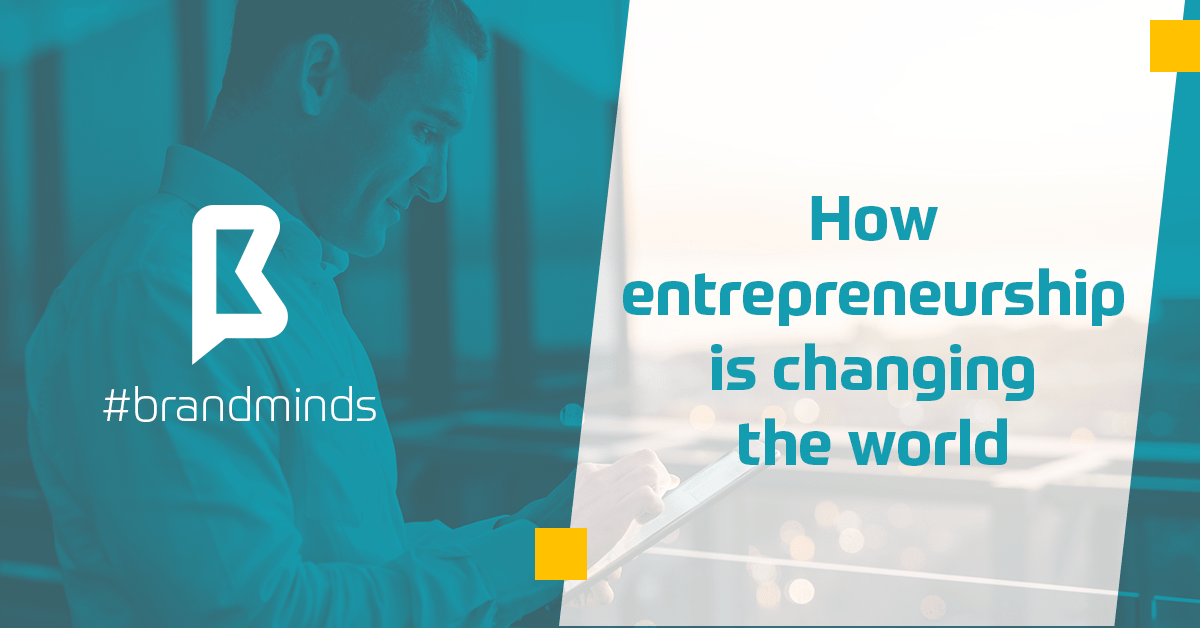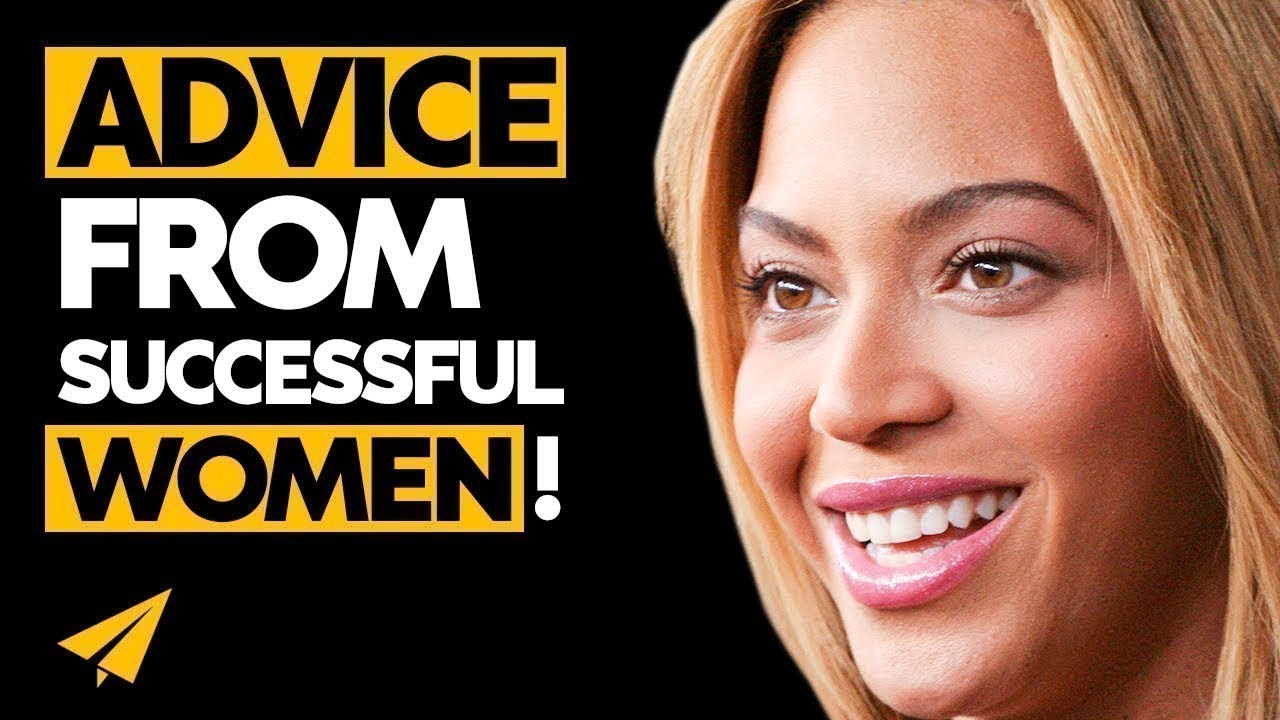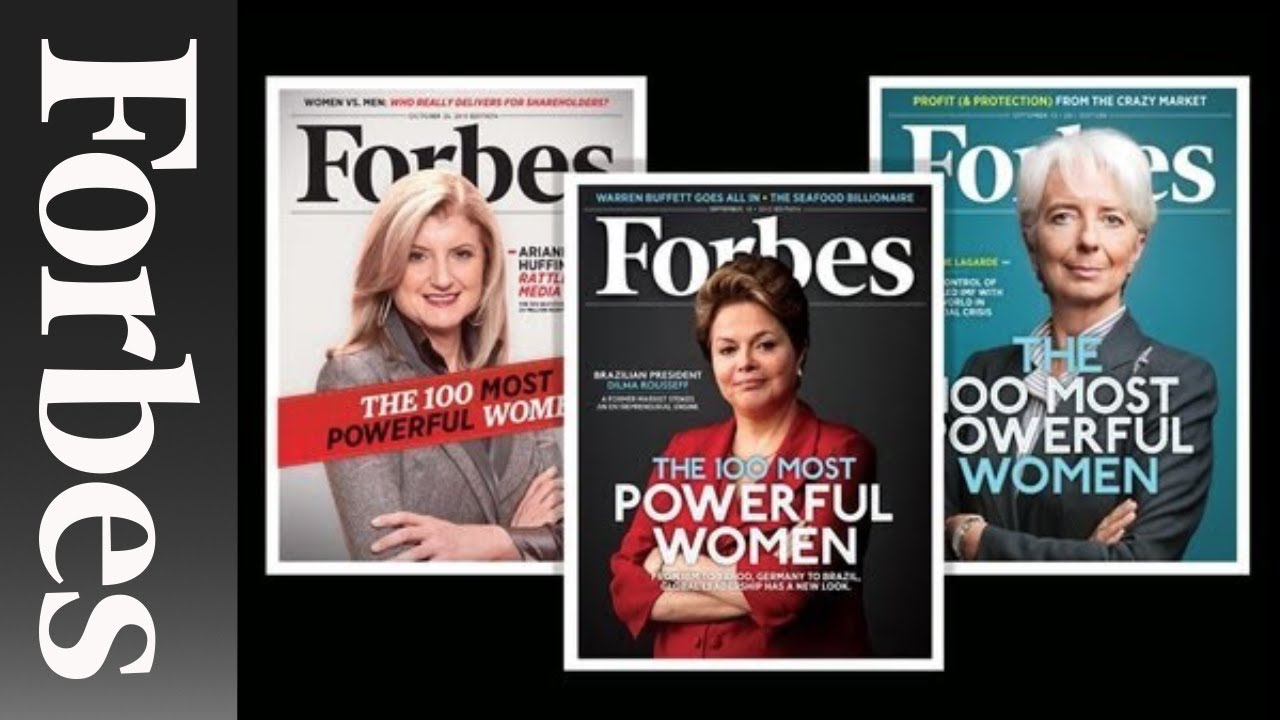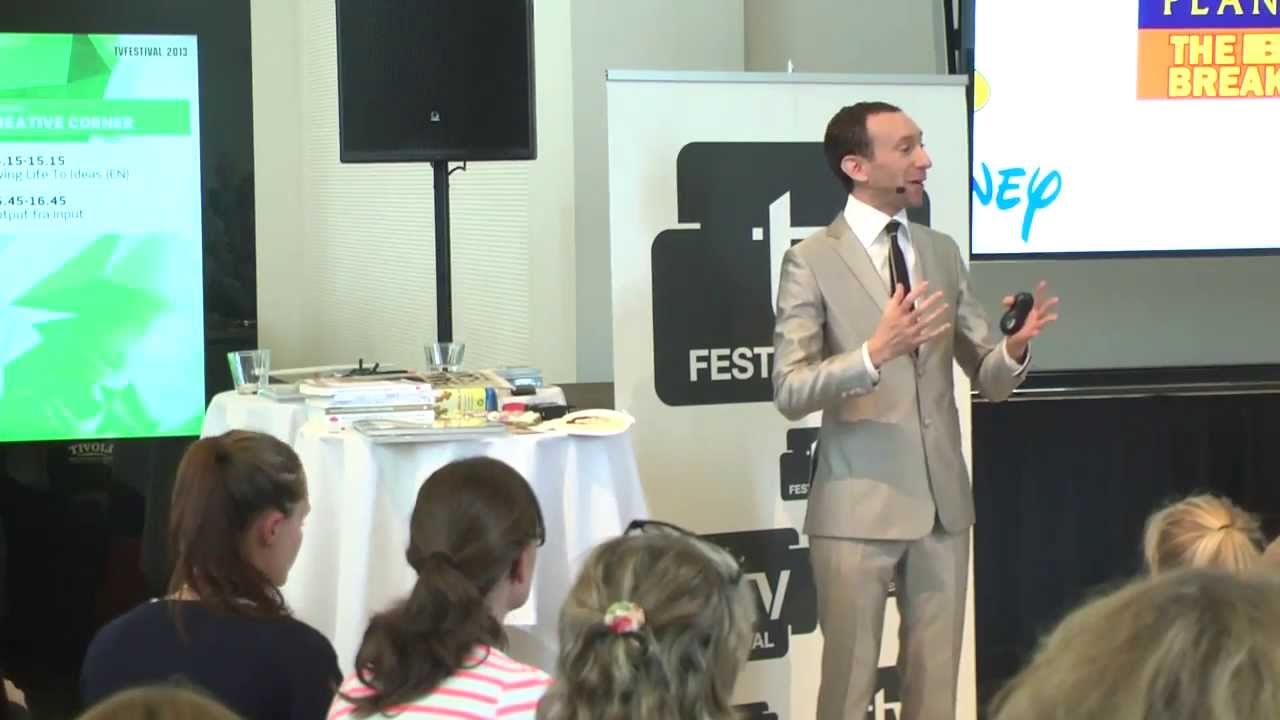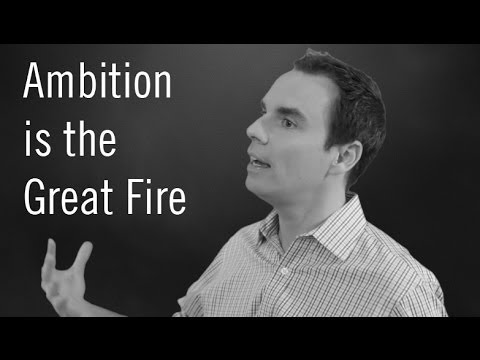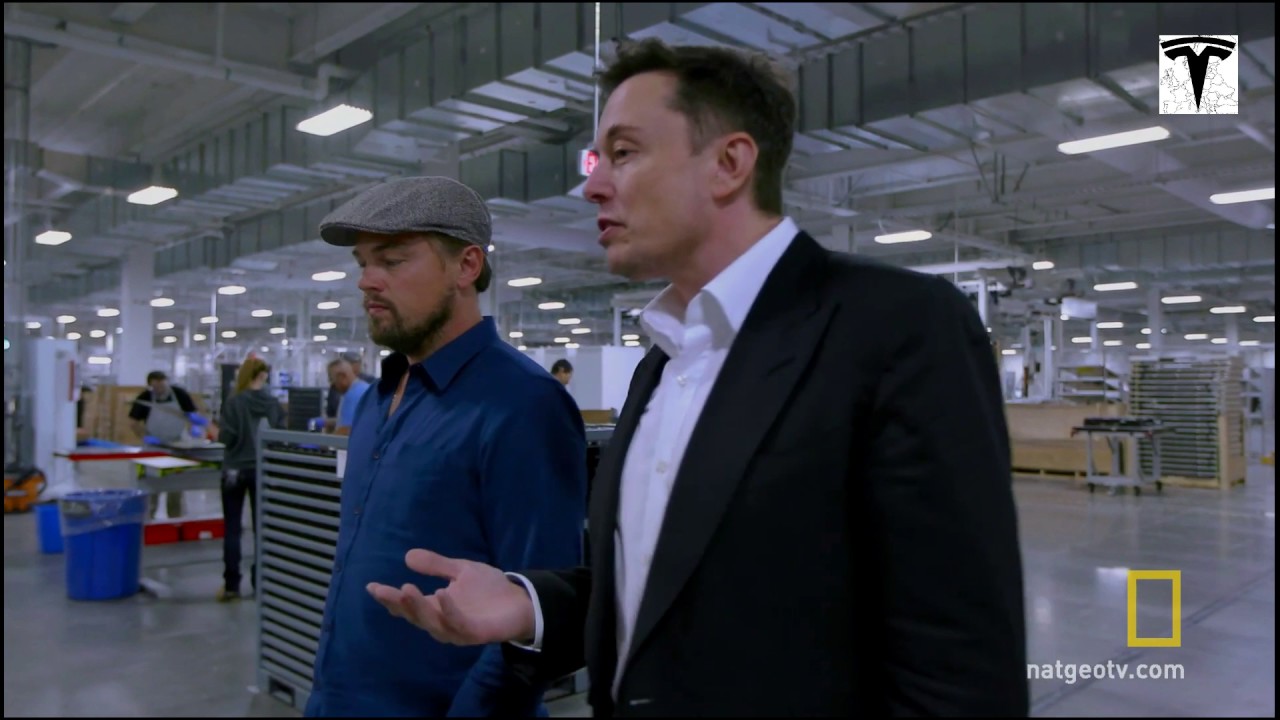Do you want to be successful? Listen to these 9 DON’Ts (2 of 3)
Do you want to be successful? Listen to these 9 DON’Ts!
In part 1 of this article read about the first three DON’Ts:
- Don’t leave things unfinished,
- Don’t allow technology to distract you
- Don’t dismiss other people’s thoughts or opinions.
Let’s get on with part 2.
4. Don’t allow yourself to burn out
Working to achieve your dream doesn’t feel like work. It’s easy for startup founders and new entrepreneurs to end up working long crazy hours into the night.
Building something from the ground up – a new product or service – is exciting and it gets the adrenaline pumping. Man or woman, young or in your forties, your body is flesh and blood, not steel. You cannot go on forever on little to no sleep, fast-food and working around the clock.
When your body gets tired, your mind follows closely. Developing the product, raising money, hiring valuable employees, dealing with the competition, questioning your decisions, fighting your inner critic etc is a highly stressful life day in and day out. Mental fatigue and depression are real and they are unfortunately widely spread among startup founders and entrepreneurs.

In a nutshell – experiencing physical and mental stress is the road to burnout.
In April 2018, KPMG Australia commissioned a study into entrepreneur wellbeing where 70 venture-backed founders were invited to answer questions.
The findings confirm what we already knew:
- Founders experience heavy workloads;
- The 64-hour week is the average among founders;
- 40 per cent of them said they had worked every day for the previous three months;
- 23 per cent could not remember taking three consecutive days off in more than a year;
- 80 per cent of founders wished they could spend more time with their friends or children;
- two-thirds were kept from spending as much time as they’d like with their partner or spouse;
- Most reported their work impacted their sleep and physical wellbeing;
- 43 per cent of founders were unhappy with their fitness level.
Ryan Holmes is the CEO of Hootsuite, the social media management platform he founded in 2008. In one of his articles on LinkedIn, Ryan talks about how he achieved work-life balance and avoided burnout. He recommends career interval training, a concept he borrowed from the fitness industry.
HIIT is a new concept of exercising which means alternating periods of intense activity with periods of rest or lower-intensity exercise.
Finding a balance is great but sometimes it just can’t be helped when you are trying to make a product work. It’s ok to put everything on hold, let your family know you won’t be available for a period of time and dedicate your days and nights to your work, says Ryan. But this can’t go on forever.
Much like HIIT (high-intensity interval training), career interval training means bursts of activity need to be offset by periods of rest and recovery.
As with interval training, intense, all-consuming stretches at work require real downtime to recover. And this is the step that’s too often missed. We go right from those all-nighters back into our normal work schedule. What’s really needed is an extended period away from the job — be that in the form of a few weeks vacation or even a longer sabbatical.
Ryan Holmes, CEO at Hootsuite
Balancing work life and home life can be tough, but getting drowned by your workload won’t help you achieve much of anything. Burnout impacts your company’s bottom line. Find a balance.
5. Never stop learning
You went to high-school than attended college or university. Maybe you liked learning and had high grades, maybe you found school boring and couldn’t wait to finish your formal education. The good news is – learning never stops.
Whether you are a new entrepreneur just starting out, keep learning. Even if you are an experienced entrepreneur, keep learning.

In the last decade, our world experienced more technological leaps than in the previous century. Our lives have dramatically changed in ten years’ time.
It’s a fact: technology is accelerating, says inventor and futurist Ray Kurzweil. In his book, ‘The Singularity is Near’, Kurzweil reminds us that smartphones didn’t exist a decade ago, no one owned a computer three decades earlier, and the first personal computers arrived about 40 years ago.
To put things in perspective, the iPhone in your pocket has over 100,000 times the processing power of the computer that landed man on the moon 50 years ago.
Formal education cannot keep up with our ever-changing and evolving world. It is a necessary foundation upon which to build our future. In school, we develop a vital skill – we learn how to learn and that we need to keep learning.
As a young boy, Elon Musk took refuge in reading. Talking about his childhood in one interview, Elon said he was raised by books – he would spend even 10 hours a day reading.
Bill Gates reads 50 books a year because reading is still the “main way that I both learn new things and test my understanding”, he said in a 2016 interview.
Whether it’s to develop a particular skill or acquire a new set of skills, keep learning. Go outside your interests and learn something new.
You might be surprised to find new ways that help you improve your performance or stimulate your creativity. Not so long ago, mindfulness and meditation were strictly associated with spiritual gurus. Today both mindfulness and meditation are two valuable techniques that support entrepreneurs achieve their goals.
6. Don’t listen to your inner critic
Do you ever think I’m not good enough, I won’t be able to perform, I will fail, I am a failure? This is your self-talk speaking negative thoughts.
Why is it that when we talk about a friend we find so many good and positive aspects, but when it comes to our own person, we are critical and judgemental?
The inner critic is a pattern of destructive thoughts toward ourselves. It can affect every aspect of our lives, including our self-esteem and confidence, our personal and intimate relationships, and our performance and accomplishments at school and work.

Read more – Self-awareness: 5 tactics to improve it
We all have that inner critical voice, but we need to acknowledge it through self-awareness and learn how to silence it.
Entrepreneurs, startup founders and professionals in every industry struggle with self-doubt and fear. These strong emotions are holding them back from being their best self and doing their best work.
Don’t allow your inner critic to dominate your life!
Bring down the imaginary walls that you have created in your mind and achieve your highest potential!
In her book, Banish your inner critic, author and Brand Minds 2019 speaker Denise Jacobs shows you how to transform your self-talk into a tool for success, identify and quiet your voice of self-doubt and generate more creative ideas than ever before.
This article will be continued with part 3.
Join the Conversation
We’d love to hear what you have to say.
Get in touch with us on our LinkedIn Group, Facebook Group or Twitter.
How Entrepreneurship is Changing the World
Entrepreneurship is about changing the world
If you’re an entrepreneur, you seek change. All entrepreneurs set out to solve a problem, that is their purpose.
They create jobs, drive innovation, they empower their employees to develop their skills and abilities. They bring new ideas, products and employ other people to create a healthy standard of living. Given the right environment, an entrepreneur can blossom into a key member of society and improve the lives of others and possibly inspire them to create their own business.
Many brands and big companies give back to the communities in which they thrive through corporate social responsibilities such as corporate philanthropy, community volunteering or socially-responsible business practices.
Observation + solution + vision
The entrepreneur is observing a real need or problem, creating the solution to solve this problem and imagining a changed world for the better.
He or she is born with or develop a special set of skills and abilities: perseverance and passion for long-term goals, courage, risk taking, shaping the future while encouraging diversity.
The entrepreneur’s passion is the engine pushing him through challenges, setbacks and struggles to achieve his purpose and to change the world according to his vision.
Here are 8 examples of entrepreneurs who brought change and shaped the world according to their vision.
Electric Light for Everyone
Thomas Edison is one of the most prominent entrepreneurs of his time.

Thomas Edison / medium.com
He was a prolific inventor holding 1093 US patents in his name, as well as patents in other countries. He invented the electric light bulb and founded the Edison Electric Light Company which later became General Electric Company (GE).
We will make electricity so cheap that only the rich will burn candles.
Thomas Edison
Fordism – The revolution of the American worker
Henry Ford developed and manufactured the first automobile for the middle-class American.

Henry Ford / thehenryford.org
His Model T had a profound impact on the 20th century landscape. To draw attention to his new affordable automobile, Ford turned to publicity and managed to ensure every newspaper in Detroit carried stories and ads about Model T. Ford’s network of local dealers made the car ubiquitous in almost every city in North America.
His posterity invented a word for his business model – Fordism. Fordism is the mass production of inexpensive goods coupled with high wages for workers. He was the first to raise his workers’ wages to $5 and introduced the five-day workweek.
It is high time to rid ourselves of the notion that leisure for workmen is either ‘lost time’ or a class privilege.
Henry Ford
The mobile phone
While working at Motorola in the 1970s, Martin Cooper invented the first handheld cellular mobile phone and led the 10-year process of bringing it to market. His vision for his new mobile phone was
“a personal telephone – something that would represent an individual so you could assign a number; not to a place, not to a desk, not to a home, but to a person.”

Martin Cooper/cnn.com
When asked about his inspiration for the mobile phone, Cooper said it was Dick Tracy’s wrist radio. He left Motorola in 1983 and co-founded Cellular Business Systems, Inc. (CBSI), which came to dominate the cellular billing industry with 75 percent market share. In 1986, Cooper sold CBSI to Cincinnati Bell (now Convergys) for $23 million.
Empowering Women through Self-employment
McConnell, the founder of Avon, didn’t set out to create a beauty company.

avoncompany.com
He was a travelling book salesperson, and offered beauty products as a benefit. He soon realised his customers, mostly women were more interested in the free perfume samples than the books, and that many of them stayed at home while their husbands went off to work.
McConnell saw a business opportunity. He mixed the company’s first fragrances himself, recruited a team of women to be Sales Representatives and debuted a new business model. His idea was successful: women loved his products, loved networking with other women and even more so, they loved the extra income they were earning.
This was just the start of Avon’s 130 history of empowering women around the globe. Being an Avon Representative helped women control their finances, and ultimately, their destinies. Seeing that the latest statistics show women dominate in direct selling, these values are very much alive and true today.
The Digital Revolution – The World Wide Web
In 1980, Tim Berners-Lee was working as an independent contractor at CERN.

Tim Berners-Lee / cnet.com
At the time, CERN was the largest internet node in Europe. To facilitate sharing and updating information among researchers, Berners-Lee proposed a project based on the concept of hypertext. With the help of other fellow researcher, he built a prototype system named Enquire. He used similar ideas to those underlying the Enquire system to create the World Wide Web, for which he designed and built the first web browser and editor (called WorldWideWeb and developed on NeXTSTEP) and the first Web server called httpd (short for HyperText Transfer Protocol daemon).
In 2004, he was knighted by Queen Elizabeth for his “services to the global development of the Internet”.
I just had to take the hypertext idea and connect it to the TCP and DNS ideas and — ta-da! — the World Wide Web.
Sir Tim Berners-Lee
The Democratisation of Information
There were other search engines helping people find information on the internet, but Google managed to outperform them and transform the world.

The verb to google was added to the Oxford English Dictionary and the business environment is fighting an ongoing battle for ranking on page one.
The giant company has gone far beyond its core service of returning results to individual queries, developing 23 additional services and products ranging from work and productivity to language translation, mapping and navigation, cloud storage and virtual assistants.
We are not really interested in search. We are making an Artificial Intelligence.
Larry Page
Artificial Intelligence
AI is the simulation of human intelligence processes by machines, especially computer systems. These processes include learning (the acquisition of information and rules for using the information), reasoning (using rules to reach approximate or definite conclusions) and self-correction. Particular applications of AI include expert systems, speech recognition and machine vision.
AI is influencing various industries for the better such as healthcare, finance, business, education, law, manufacturing.
Google is one of the companies using AI through Google Brain and Google DeepMind. Google’s vision is ‘to conduct research that advances the state-of-the-art in the field, applying AI to products and to new domains, and developing tools to ensure that everyone can access AI.’
Here are a few examples of how Google is using AI: forecasting earthquake aftershock locations, predicting cardiovascular risk factors, identifying exoplanets and so on.
Sustainable and Clean energy
If Henry Ford revolutionized the American society, Tesla is changing not one society, but the world.

image source: owler.com
Tesla’s vision is to accelerate the world’s transition to sustainable energy with electric cars, solar panels and integrated renewable energy solutions for homes, businesses and utilities.
Tesla was founded in 2003 by a group of engineers who wanted to prove that people didn’t need to compromise to drive electric – that electric vehicles can be better, quicker and more fun to drive than gasoline cars. Today, Tesla builds not only all-electric vehicles but also infinitely scalable clean energy generation and storage products. Tesla believes the faster the world stops relying on fossil fuels and moves towards a zero-emission future, the better.
Sources: searchenginehistory.com, ai.google.com, searchenterpriseai.techtarget.com
10 Habits of Successful Entrepreneurs (1 of 2)
Habits change into character.
Ovid
We are all creatures of habit. Some habits can ruin our lives while others can be beneficial to us. Whether we choose to nurture bad habits or good habits, it’s up to us.
Here are 10 habits to help you achieve success as an entrepreneur:

1. Think Big and be Confident
Think big, start small, scale fast
Yes, thinking big is a habit and for any habit to produce results you need to exercise it daily.
What does it mean?
It means not to be afraid of scaling up. To think big you need to erase your own limitations that suppress your way of thinking. It’s the difference between driving a car to the next town and driving a rocket to the next planet.
You may refrain yourself from thinking big because you feel intimidated. The cure for this type of intimidation is breaking your high purpose into small goals. If you believe you can achieve one small goal at a time, you will feel empowered to work towards achieving your purpose.
To think big you need to have self-confidence. Self-confidence is the trust or faith that you have in yourself and your abilities. Don’t confuse self-confidence with self-esteem. Self-esteem is the opinion you have of yourself. When you have self-confidence you have a positive yet realistic view of yourself and the situations in which you are involved. Confident people don’t typically fear challenges, they are able to stand up for what they believe and have the courage to admit their limitations.

2. Lead, Inspire and Empower
Once you empower people by learning how to motivate and inspire them, they will want to work with you to help you achieve your goals in everything you do.
Brian Tracy
No entrepreneur achieves success on his or her own. As an early-stage entrepreneur, you can do everything but only for a short period of time. You need a team.
Employers are the most important resource of any business. The moment you begin working with a team, you turn into a leader. And the purpose of leadership is to lead, inspire and empower. You lead by example, you inspire through vision and you empower your team by supporting their self-development.
When empowering people becomes one of your habits, may they be employers, family members, business partners or suppliers, you are actually empowering them to help you achieve your goals and higher purpose.

3. Be Self-aware
Self-awareness isn’t just betting on your strengths, but accepting your shortcomings.
Gary Vaynerchuk
Self-awareness is understanding your own self. It means having a really good understanding of your emotions, as well as your strengths, limitations, attitudes, values and motives.
Part of being self-aware is knowing what emotions or feelings drive your behaviours. The moment you realise what triggers your behaviours you begin to understand about others’ actions and behaviours.
You can become a better leader through self-awareness. Dr Tasha Eurich, an organizational psychologist and executive coach conducted a four-year large-scale scientific study of self-awareness. She found that self-awareness helps leaders improve their leadership skills. To become a better leader through self-awareness you need to do the following:
- Focus on building both internal and external self-awareness;
- Seek honest feedback from loving critics;
- Ask What instead of Why.
Discover more about Dr Eurich’s study here:
Become a better leader through self-awareness – 2018 study.

4. Place Me Time and Family Time on your work calendar
Until you value yourself, you will not value your time. Until you value your time, you will not do anything with it.
M. Scott Peck
Many entrepreneurs believe that in order to be successful they need to be willing to sacrifice their personal and family life. But that is not true. You can have your cake and eat it too. All you need to do is think of your family activities like any other business appointment and write them in your schedule.
It’s equally important to prioritise me time because it is beneficial for you and your business. Whether is running or meditating or going for a walk in a park, me time helps you avoid the onset of stress, mental fatigue, and insomnia. It also builds your self-esteem as you come to realize that you are important and deserve to have a little time to yourself.

5. Read with the purpose of Learning and Developing
I was raised by books. Books and then my parents.
Elon Musk
Bill Gates reads 50 books a year and Elon Musk used to read 10 hours a day when he was a kid.
Reading is the old-fashioned way to expand your knowledge. As an entrepreneur, you need to keep growing, developing leadership skills, finding inspiration and overall, keep yourself updated with the latest trends and information.
Read part 2: 10 Habits of Successful Entrepreneurs (2 of 2).
10 Habits of Highly Effective Entrepreneurs (part 1 of 2)
What do all highly effective entrepreneurs have in common?
They have achieved success thanks to the good habits they exercise each and every day.
Here are 10 habits of the highly effective entrepreneurs:
1. Know your Why

Before anything else, you need to know your why, the reason behind your getting-up every morning and pushing through life’s struggles. Simon Sinek is the speaker that has drawn everyone’s attention to the Why with his famous TED speech How great leaders inspire action (currently with 40M views).
Knowing your WHY gives you a filter to make choices, at work and at home, that will help you find greater fulfilment in all that you do.
Simon Sinek
How do you find your Why?
To find your why answer to the following questions:
What are you passionate about?
What are your innate strengths, skills and abilities?
Where do you add the greatest value?
Remember, it’s all about living with purpose.
2. Set goals

Now that you know your motivation, to reach a fulfilled life you need to set goals. But not just any goals – ambitious goals.
During an interview where he talked about his professional journey towards his goal – to be the greatest sales training expert – Grant Cardone shared a personal insight: his early goals were too small. He achieved them quickly and realised he could have done ten times more.
Whatever you think you can do, just multiply it by ten because you can do more than you think.
Grant Cardone
Your goals are ambitious and because of that, you may feel they are unattainable. But you are wrong: you can reach your goals if you break them into smaller, more manageable tasks or goals.
Let’s say you have a personal goal: to run the marathon the following year. You are currently a potato couch so running the marathon in such a short time is scary. Once you break this goal into smaller goals, it will not feel scary anymore.
What do these smaller goals look like?
Your first goal is to stop browsing your Facebook, leave your couch, put on your running shoes, walk to the door and start running for 15 minutes. Do it again tomorrow and the day after tomorrow and next week.
3. Take responsibility for your life: both achievements and failures

Do you know someone who believes their life is not what they hoped for?
They say it’s their parents’ fault or their spouse’s fault or the government’s fault? They blame everyone but themselves!
We all know this type of person. They are speaking from a victim’s perspective, not taking accountability for their own life decisions. Whether you had success or you failed, it was your decision to go down that path so take responsibility!
Your life if of your own making, it’s pointless to blame anyone else. You must acknowledge both successes and failures. It’s common for women entrepreneurs especially to take their accomplishments for granted: they are not aware of their strengths and talents; they often believe it wasn’t them, it was luck. The same is true for failures: you need to reframe them and see them for what they are – opportunities for growth.
4. Achieving great self-discipline

You cannot achieve a high level of focus if you don’t have great self-discipline abilities.
What prevents you from being disciplined?
Social media distractions, irrelevant phone calls and emails? You have only 8-10 hours of work and if you are focused you can get a lot done.
Time management goes hand in hand with self-discipline. Poor time management has various effects on entrepreneurs: missed deadlines and appointments, working late, burnout syndrome, stress, poor quality of work and financial loss because Time is Money.
Read our article on time management: 5 time management tips & tricks for entrepreneurs.
Here are 5 methods for gaining self-discipline according to forbes.com:
Remove temptations.
Eat and exercise regularly and healthily.
Break bad habits – be aware that it will take time.
Schedule breaks, treats and rewards for yourself.
Forgive yourself and move forward.
5. Obsession with self-development

It is human nature to want to know and learn new things. Look for opportunities to grow and develop yourself: take courses to develop your skills, learn how to speak in public, how to make a convincing argument, how to sale or market your products, how to attract valuable people to your professional network a.s.o.
You can listen to podcasts, find mentors or participate in webinars and workshops. What is the easiest way to self-development? Read books! Did you know that Elon Musk used to read up to 10 hours during his childhood? Discover what books have influenced him.
The more you learn the more you will earn.
This article will be continued with part II.
5 Business Growth Secrets from Successful Entrepreneurs
One of the questions that most entrepreneurs ask is What drives business growth?
To help you grow your business, we put together the following list:
5 business growth secrets from successful entrepreneurs
Business growth secret #1 – Continuous learning
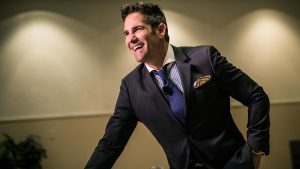
Grant Cardone/wallstreetoasis.com
At 23 Grant Cardone was a car salesman struggling with a drug addiction. He was a poor salesman, making only $300 a month. After getting clean of his drug addiction, he decided to become the best salesman though he didn’t like selling cars. To achieve his goal, he went all in. He spent all of his free time studying every sales book, sales training tape or sales course there was on the market at that time. He studied all the sales masters to learn everything he could. Every book, every line, and every piece of information – he turned them around and made them his own. He lived and breathed sales.
Within three years he was in top 1% of everybody in the automobile industry. He became a sales master at 29 years old. He was teaching other people about sales while actively doing sales every day.
In his fifties Grant Cardone is the best sales training expert in the world. He owns multiple successful companies whose annual revenues exceed $100 million.
Grand Cardone will be speaking at Brand Minds 2019, the Central and Eastern European Business Summit of the Year, on May 10th, in Bucharest.
Key takeaway: Find your subject of interest and go deep.
Business growth secret #2 – Get used to failing
What do all successful entrepreneurs have in common? It’s not their IQ, it’s not their talent or having lots of money. It’s grit.
Grit is a personal quality defined as perseverance and passion for long-term goals. Grit entails working with great effort and determination toward challenges. Another feature of grit is the ability to maintain effort and interest over years despite failure, adversity and plateaus in progress.
When people experience disappointments or boredom in their entrepreneurial endeavours, most of them change direction or abandon altogether. Unlike them, the gritty individuals stay the course. Think Elon Musk, Steve Jobs and Jack Ma: faced with one failure after another, they didn’t surrender, they kept going for their dreams.
Find more about grit in our article This is the no 1 trait that predicts entrepreneurial success.
Key takeaway:
Reframe your failure and learn from it. All entrepreneurs make mistakes but only few are mentally strong to get back up and keep going.
Business growth secret #3 – Experiment
Have you heard of the 10,000-hour rule that states one needs to practise for 10,000 hours to become an expert? This rule of thumb holds true in domains such as games, music and sports, but it isn’t valid in business.
What helps businesses scale up is experimentation. This is Mark Zuckerberg’s strategy to grow Facebook: he replaced the 10,000-hour rule with the 10,000-experiment rule (source: entrepreneur.com)
The 10,000-experiment rule stems from science. At the core of any scientific development lies experimentation: develop a hypothesis, perform a test to prove the hypothesis right or wrong, analyse the results, and create a new hypothesis based on what you learned.
Giant tech companies have been developing fast and the driving force behind their achievements is the scientific method of experimentation. Learn more about the 10,000-experiment rule here.
Key takeaway:
Devise multiple small experiments and run them every day. Analyse the results, draw conclusions and apply them to your next experiment. This process will ensure constant improvement of your results and with each experiment you will get closer to achieving your goal.
Business growth secret #4 – Grow a positive company culture
In 1998 Nokia became the best-selling mobile phone brand in the world. By 2013 Nokia lost it all and was acquired by Microsoft. There were many reasons for Nokia’s demise but one reason stands out: Nokia people weakened Nokia people.
A 2015 research paper found that the giant manufacturer’s culture of status has made the company ill with organisational fear. The human factor was added to economic and structural factors and together they have generated a state of “temporal myopia” that hindered Nokia’s ability to innovate.
Employees stated that top managers and directors were no longer abiding by Nokia’s core values of Respect, Challenge, Achievement and Renewal (for more in-depth analysis read our article Why did Nokia fail?).
Microsoft learned from Nokia’s mistakes and changed its culture when Satya Nadella became the CEO of Microsoft in 2014.
Satya Nadella says his job as CEO is to create a culture that focuses on listening, learning, and harnessing individual passions and talents. At the core of Microsoft’s culture is employer empowerment.
Key takeaway:
Company culture starts at the top and grows at the bottom. Leaders must embody the company’s values and be role models for their employees.
Business growth secret #5 – Develop your network

Business networking is possibly one of the most important soft skills for entrepreneurs. It is the main activity that drives business growth.
Your main goal is to become a magnet, which attracts people and resources: money, ideas, opportunities, information etc. What does it take to become a magnet? Invest your time and energy to develop a strong network of contacts.
Do you need help to network correctly and efficiently? Read our article: 5 tips for successful business networking.
Key takeaway:
Remember that networking is not about selling. Business networking is about offering advice and helpful insights and building authentic relationships.
Expert’s opinion
Peter Barta, CEO of FPP and mentor at The Founder Institute is sharing with us his perspective on what it takes for an entrepreneur to be successful:
Starting a new venture is a very challenging process. Few of new initiatives end up being successful companies.
There is a saying Good ideas are a dime a dozen. What is the meaning of it? It means the value in any business is in implementation, and successful implementation is a mix of ingredients like vision, drive, confidence, flexibility, communication skills, multitasking, optimism. If you mix them together in the right way, it will lead to a successful company.
Running a business is like running a marathon with highs and lows, and what is coming can be exciting and scary in the same time. In order to maximise your chances you need to be clear on what your strengths and weaknesses are.
One of the things that strikes me when I talk to wannabe entrepreneurs is they can’t answer basic questions like:
What’s your reason for starting a business?
Most of the answers fall under these:
I want to be rich.
I don’t want to have a boss.
I had a fight with my former boss and so on.
All of these answers are not enough to drive your motivation in building a company. Sometimes I’m asking them if they are willing to run the extra mile in order to succeed, and the most obvious answer I get is What do you mean by that? I start to add:
Are you willing to learn?
How about failing?
How about experimenting?
What I found the most difficult are things related to experimentation and failing. Why? Culturally speaking we are not used to getting out of our comfort zone. We feel insecure and that’s okay because we don’t know what is out there, what is expecting us. The same with failing.
Unfortunately fear of failing is embedded in our DNA. We tend to see this as something bad. What we can do instead is we can look at it as being a learning process, a simple experimentation that didn’t get us the results we wanted.
One ingredient that I was mentioning above is optimism. This means when things don’t go in a way you expected and you failed, you recognise that you are not a failure, but the strategy or product that you were working on were not right.
5 time management tips & tricks for entrepreneurs
Have you ever felt 24 hours a day is not enough to do everything you planned?
Not having enough time to accomplish all tasks at hand is one of top 3 challenges for entrepreneurs. Here are some of the effects poor time management have on entrepreneurs: missed deadlines and appointments, working late, burnout syndrome, stress, poor quality of work and financial loss because Time is Money.
If you ever wished you could freeze time so you can get everything done in one day, this article is for you.
5 time management tips & tricks for entrepreneurs:
1. Write down your tasks for the day
Before beginning your workday, in the morning, when you drink your coffee, find a place and five minutes of undisturbed silence to write down your activities or objectives for that day.
You can use a notebook or your smartphone calendar. Assign each task on your list a specific timetable and make sure that all activities in one day add up to eight hours of work.
Our recommendation is to write down your checklist on paper, not in your smartphone. Why? Because the action of checking off your tasks with a pen on paper feels so good! The reason it feels so good is that checking items off of a checklist releases small amounts of dopamine that then fuel us to keep checking off more items and that’s how you get more done!
“The satisfaction of ticking off a small task is linked with a flood of dopamine. Each time your brain gets a whiff of this rewarding neurotransmitter, it will want you to repeat the associated behaviour.” (source: psychologytoday.com)
Key takeaway: turn writing down your tasks into a daily habit.

2. Set and stick to a fixed schedule
If you are managing a team and meeting with important clients, set your schedule for the week and make it available to every member of your team.
Set specific period of time to answer your emails and schedule meetings with your team. Set rules for every activity like “when I’m in the meeting with the 5 o’clock client, I won’t answer phone calls” so your team will call you once the meeting is over.
Key takeaway: fix your schedule, make it available for every member of your team and set rules.

3. Prioritise, focus, delegate
What is your main goal as an entrepreneur? It is building your business, not paying bills or solving conflicts between team members.
Be clear on your priorities and focus on activities that help you reach your business goals.
It is equally important that every member of your team undergoes the same process of establishing priorities and goals. Go even further and establish which particular task or activity each team member never does. Such as: the sales agents never answer the office phone.
Delegation is an important part of the entrepreneur’s daily activity, yet so many entrepreneurs and managers fail to delegate. Why?
We asked time-management expert, Octavian Pantis this question and here is what he told us:
Most entrepreneurs don’t delegate as much as they should for four main reasons:
- Past bad experiences, when they spent time to explain, to follow-up, they got angry for the job not getting done properly and then they had to spend even more time to fix the issue and get it moving again;
- They’re busy and stressed today (and almost everyday) and they feel it will cost them less, both emotionally and time-wise, to get the job done themselves;
- It’s their business and they think they know best how to do things, including the small details and the particular approach that will bring the best results;
- Because of all of the above, they are not growing people enough so they can delegate responsibilities and relieve themselves of some of the duties.
If you want great people, you need to grow them. And you need to invest time now in order to save time later. You can’t just “import” someone and hand over a chunk of your responsibilities, no matter who is the “senior” person you’re thinking about bringing onboard.
Key takeaway: make sure everyone on your team is aware of his or her priorities and objectives and learn how to delegate properly.

4. Tame the inbox & social media temptations
Many entrepreneurs spend too much time each day reading and answering emails instead of focusing on more important tasks for their business. It feels like a never-ending nightmare! But there is a solution: checking your inbox should be like any other task.
Set designated times for checking your emails and leave them completely alone when you’re doing another task. Do the same for your social media activity: treat checking your social media accounts like a task and assign an hour or two a day.
Key takeaway: turn your email and social media notifications off and treat them as tasks.

5. Time management or attention management?
The digital revolution changed the way information is generated and shared. Nowadays every company and organisation are fighting for our attention.
“Allocating time to something no longer means that it will receive your attention, and without attention, your time is somewhat irrelevant. Attention creates action, produces quality and facilitates productivity. Attention also has a dramatic impact on your life. What you give your attention to, is what determines your experiences.” (source: attentionmanagement.com)
Productivity experts have found that besides time management, entrepreneurs need to develop a new skill: attention management. Attention management means acquiring the ability to control distractions, single-task for higher-quality results, and engage in sustained (focused) attention when necessary, which should be a part of almost every day.

Save the Date: 4 Blockchain Events for Entrepreneurs in 2019
When talking about the future of business, Blockchain is on every entrepreneur’s mind.
You may know Blockchain is valuable, but understanding how Blockchain works and how your business can benefit from it, can be a challenge.
Business events focused on Blockchain are opportunities for entrepreneurs to receive valuable information, to connect and network with professionals and be inspired to take their business to the next level.
Here are 4 Blockchain events that entrepreneurs can attend in 2019:
BLOCKCHAIN EXPO
- Date: April 25-26, 2019
- Location: London, UK
- Info: https://blockchain-expo.com/global/

image source: blockchain-expo.com
Blockchain Expo is a blockchain focused conference and exhibition event dedicated to blockchain experts, enthusiasts and entrepreneurs.
The conference is dedicated to delivering top-level keynotes, interactive panel discussions, solution-based case studies and free workshops.
The conference aims at exploring the industries that are set to be disrupted the most by this new technology: manufacturing, retail, financial services, legal, healthcare, insurance, energy, music, government and real estate.
The speaker lineup features executives from major companies like Coca-Cola, IBM, Allianz, Deutsche Bank, Kodak etc.
FUTURE BLOCKCHAIN SUMMIT
- Date: April 3-4, 2019
- Location: Dubai, United Arab Emirates
- Info: https://www.futureblockchainsummit.com/

image source: twitter.com/futblocksum
Future Blockchain Summit is the gateway to the world’s most advanced blockchain government and a meeting ground for industry leaders and tech start-ups.
During two days more than 1500 people will hear from over 60 speakers specialising in all areas of the blockchain ecosystem. Throughout the two days blockchain enthusiasts can connect with the blockchain leaders of the Dubai government and cutting edge global and startup tech leaders.
The summit’s topics range from smart cities, energy and finance to real estate, healthcare and education.
The event is rich in content and very dynamic for attendees: panel discussions, case studies presentations, networking opportunities, exhibitions and showcases.
THE BLOCKCHAIN EVENT
- Date: January 31-February 1, 2019
- Location: Fort Lauderdale, USA
- Info: https://www.theblockchainevent.com/east/

image source: theblockchainevent.com
The Blockchain Event is dedicated to all entrepreneurs, developers and investors interested to learn everything about blockchain business models.
This event’s attendees will learn how ICOs and cryptocurrencies can be leveraged to gain customers, add value to company offerings and differentiate products and services.
Industry experts and founders of cutting-edge global startups will discuss CBOE attention, potential regulation, security concerns and what the future holds for blockchain.
CRYPTO EXPO ASIA
- Date: April 27, 2019
- Location: Manila, Philippines
- Info: https://philippines.cryptoexpo.asia/

image source: philippines.cryptoexpo.asia
The Crypto Expo Asia is not just about building network between crypto companies and gurus from all over the world but more so about getting to know what crypto world is actually about. Many up-to-date and vital questions of the crypto-world will be covered in the speaker hall and workshop rooms.
Here are a few topics that will be discussed: Blockchain business, Blockchain digital identification, ICO and White Paper projects, Crypto-exchange, cryptocurrency and crypto-trading, cryptocurrency futures, mining as actual business etc
This event is dedicated to brokers and investment companies, private investors, insurance, financial and HR organizations, traders, media, software developers, payment systems, law firms.
Best Pieces of Advice For Women Entrepreneurs in 2017
According to fastcompany.com, women entrepreneurs are the fastest-growing segment of business owners in the U.S. But, compared to male-owned businesses, women-owned businesses generally fail at a higher rate, employ fewer people and generate less revenue. The reasons for the disparity are complicated and varied: difficulty in accessing capital, entrenched social norms, and differences in the industries male- and female-owned businesses tend to cluster are a few of the reasons behind the imbalance.
We are focusing on the positive and are determined to offer you some pieces of advice that we are sure will help you along the way.
Be bold. Be elegant.
One of the many advantages that women have other men in business is their ability to be bold and elegant, at the same time. Of having the courage to say what they think, openly, but beautifully. Their strengths, presented in a very elegant manner, makes them special and powerful. Likewise, loved by their employees.
Build for the high-expectation customer.
Here’s a common trap founders fall into: gain users at any cost. Often, they chase after daily active users, monthly active users and retention numbers. “They believe that appealing to every customer is one way of solving these problems,” says Julie Supan, who has counseled Airbnb, Dropbox and Thumbtack on branding. That’s the wrong approach, Supan cautions. Instead, focus on the high-expectation customer (HXC). She’s your ideal user, “the most discerning person within your target demographic. It’s someone who will acknowledge — and enjoy — your product or service for its greatest benefit,” Supan says. “If your product exceeds her expectations, it can meet everyone else’s.” The HXC serves as a valuable touchstone to ensure that you’re growing in the right direction and to validate — or invalidate — your action plan.
The deeper the context, the better the advice
Advice givers should always reframe questions to orient around the advice seeker, not their own expertise. And, after offering a spread of data points as context, advice seekers should always ask what they should do next.
Invest in people
Your employees are the best power you have after your own and the gem of your business. They will be the ones helping you achieve the success.

There is benefit to failure
Barbara Corcoran, the famous investor from the hit show Shark Tank once said “My best successes came on the heels of failures.” This is a powerful lesson for any aspiring business owner, as most of today’s most established entrepreneurs have been faced with countless failures. The importance of dealing with failure is that you need to be able to learn from the failure, dust yourself off and move on, even if you deal with consistent failure.
Never be afraid to follow your passion
Debbie Fields, the creator of Mrs. Fields, said “what I wanted was to be allowed to do the thing in the world I did best.” This motivated the entrepreneur to follow her passion for cooking, even when others didn’t believe it could turn into the success it is today.
You have to believe in what you are doing
Estee Lauder, founder of the famed makeup brand said “I have never worked a day in my life without selling. If I believe in something, I sell it, and I sell it hard.” Believing in the product and service that you are selling is the first and most important component of being a successful entrepreneur. Without a firm belief in what you are doing, you will never be able to find the success that you deserve, no matter how hard you work. You must believe in the company you have and work relentlessly to sell that idea to the world, making them believe in it as much as you do.
Big achievements are possible
Entrepreneur and iconic mogul Martha Stewart claimed that “it is within everyone’s grasp to be a CEO.” Years of gender bias have left some women not dreaming big enough with their professional aspirations. Stewart’s quote drives the point home in saying that everyone has the ability to earn this type of title, if they are willing to do the work. Dreaming big and visualizing yourself in a big role is one of the best ways to get started on a journey towards being a successful entrepreneur.
Taking risks is important
Lillian Vernon, founder of Lillian Vernon Corporation, once said: “I don’t look at risk the way other people do. When you’re an entrepreneur, you have to go in feeling like you’re going to be successful.” When Vernon started her company she was married and pregnant, and heard from so many people that starting her corporation was a risk, but it was one she was willing to take. Sometimes, a little risk has to be involved if you want to see the big payoff in the end.

Tell a visual story
Melanie Abrantes, designer, believes that the most important thing about selling your product online is to make sure that the images of your product are able to tell the full story. “Since people won’t be able to see it in person, they have to imagine what the product is going to look like in that setting. When you have professional photography involved, you are able to create a life for that product.”
The means don’t justify the end
The author and icon Gloria Steinem considers that the ends do not always justify the means, in business or in life. “In the end, the who you are is much more important than the what you are. And as beings who need social interaction to survive, the value in who you are while getting to where you’re going is everything. The means will always become the ends,” said Steinem, quoted by billboard.com.
Doubt is your biggest enemy
Trust in yourself and you will do just great. Don’t let anyone plant you doubts when your gusts it’s telling you something. Keep positive people around you that will influence you in a great way.
Celebrate every important step and victory
Make sure you embrace everything good that happens in your business. Don’t sell short your victories and try and enjoy each one of them. Success is not easy to come by and all your efforts and dedication deserve the party.
Keep in mind the big picture
Don’t get frustrated easily or become unhappy just because of some small step backs. Remember the big picture, what you want to accomplish, your main goals. They are the real deal.
More pieces of advice you may find here and here.
10 Things you might not know about Shed Simove
Sheridan “Shed” Simove is a modern day creative genius. He lives and breathes ideas. Every day of his life dozens of new ideas spring from his astonishingly active mind. The ideas can relate to pretty much anything — TV shows, ranges of sweets, executive toys, greeting cards, money-making schemes — the list is endless. And if an idea hasn’t been done before, then Shed is sure to attempt it.
Here are some details about him you might find interesting:
1.In the book “Ideas Man”, Shed describes how dozens of his ideas came to be, how they succeed or sometimes disastrously fail. Some of Shed’s ideas include a range of adult candies called “Clitoris Allsorts,” a groundbreaking documentary that involved him going undercover as a 16-year-old schoolboy (when he was 30), and the launch of his own currency, the “Ego”.
2. Shed Simove is the creator of the Shinder app, dating app that matches women with the same single man, him. “I thought, if you can’t beat them, maybe create your own competition where you’re the only person in the competition, therefore, you will then by de facto win,” he said for The Verge. “You will win! In the kingdom of the blind, the one-eyed man is king. I thought I would try to create my own pond, so that then I would naturally be the biggest fish.”
3. A unique business model that has worked for Shed multiple times is transforming unconventional concepts into lucrative new ventures which form the basis of his stand-up routines and inspirational speeches. “Shed’s resume reads like it was scripted for a comedy-romance about an accidental but successful entrepreneur. Because his success is very real, the first thing we asked him is what he thinks actually goes into the making of a remarkable entrepreneur,” consider the journalists from businessfundingshow.com.
4. He thinks the emphasis of education should be on exploring, experimenting, falling – so that you know then how to get up and learn from your mistakes. Only after many failures can you ever hope to succeed. The human brain is naturally primed for learning. That’s its massive computational superpower.
5. Simove believes the barriers to starting a new venture – and adventure – are incredibly low now – and really the only barrier I feel is often in our heads.

6. “I certainly work hard on anything I do, even if it’s meant to be humorous or entertaining. Humor to me is very important because it helps us get through life,” he declared for businessfundingshow.com.
7. His formula is not so different from Richard Reed or Charlie Mullins. His education in Experimental Psychology combines with a career in Disney World and showbiz into a one-of-a-kind brand of entertainment. While his products may trigger an outburst of laughter in one case or extreme controversy in another, there are active and engaged market segments that he has carefully tapped into.
8. To date, Shed has sold over one million products worldwide and also holds the honor of being the first person to reach the Amazon Top 50 with a blank book – Shed’s masterpiece entitled ‘What Every Man Thinks About Apart From Sex’ reached 44 on the chart and has been translated all over the globe… It also achieved a Guinness World Records for ‘Most Pages In Published Book’.
9. As well as a successful career in television production, Shed has forged a highly innovative merchandising empire – creating novelty gifts, executive toys, best-selling adult sweets, books, greetings cards, and even his own currency. He’s won ‘Gift Of The Year’ twice for two of his creations – a range of birthday candles that spelt “You’re Old” and the smash hit ‘Sound Machine’.
10. Shed’s inspirational and hugely informative performances showcase his amazing career path, using props and visuals that add to the engaging and exciting stories he tells. Shed has performed his visual and inspirational Motivational Speeches to both entrepreneurs and non business people alike. A cross between Anthony Robbins and Woody Allen, Shed is a truly compelling, uniquely memorable, one-off performer.
Inspirational people to watch in 2017
Inspiration is what drives us to be better and better each day, to look up to people that give us the courage to try something new, to discover and push our limits. It’s also one of the talents that few people carry with them, a quality that makes them really special. We chose for you certain persons, from different fields of activity, that we believe represent an inspiration for today and the years to come.

The crown jewel of this graphic designer’s online empire, which also includes her popular lifestyle blog, is Pinterest, where Cho has 12.8 million followers. As the most-followed person on the platform, she’s now able to garner big partnerships, including a photo-documented road trip sponsored by Toyota and new lines of baby clothes and nursery and home décor for Target. Last year she was tapped to design the souvenir eggs for the 2016 White House Easter Egg Roll. As if that weren’t enough, Joy is a best-selling author, has a thriving YouTube channel, consults with leading companies.
More about her you can read here.
Felix Arvid Ulf Kjellberg (a.k.a. PewDiePie)

The Swedish gamer (born Felix Kjellberg) has a record of 42.7 million subscribers on YouTube, giving him a reach bigger than most TV networks. He recently struck a deal with Disney’s Maker Studios to produce original content for RevelMode, a new virtual network. PewDiePie’s net worth has grown steadily since 2010, clearing over $9 million a year since he started posting videos to YouTube.
For proof that a single tweet can change the world, look no further than Sept. 2, when Bouckaert, the Emergencies Director for Human Rights Watch, shared a photo of Alan Kurdi, a 3-year-old Syrian-Kurdish refugee, lying dead on a Turkish beach. Within hours, the image (taken by Turkish photographer Nilüfer Demir from the Dogan News Agency) had gone viral, drawing attention to the human toll of Europe’s migrant crisis—and perhaps even hastening a response. Two days after Bouckaert’s tweet, the U.K. agreed to accept thousands more refugees.

He has testified about war crimes before the United States Senate, the Council of Europe, and at the Yugoslav Tribunal (ICTY) in The Hague, and has written opinion pieces for papers around the world. His work has been profiled in Rolling Stone, The Washington Post, The Stanford Lawyer, and The Santa Barbara Independent Newspaper. Most recently, Bouckaert was awarded an honorary doctorate by the Catholic University of Louvain for his work on human rights.
Engineer, physician, best selling author and brilliant entrepreneur. He’s best known for being the Founder and Executive Chairman of the XPRIZE Foundation (best known for its $10 million Ansari XPRIZE for private spaceflight.) and Singular University (whose mission is to educate leaders to apply exponential technologies to address the biggest challenges we face today).
Dr. Peter H. Diamandis is an international pioneer in the fields of innovation, incentive competitions and commercial space. In 2014 he was named one of “The World’s 50 Greatest Leaders” – by Fortune Magazine. Diamandis is also the Co-Founder and Vice-Chairman of Human Longevity Inc. (HLI), a genomics and cell therapy-based diagnostic and therapeutic company focused on extending the healthy human lifespan. In the field of commercial space, Diamandis is Co-Founder/Co-Chairman of Planetary Resources, a company designing spacecraft to enable the detection and prospecting of asteroid for precious materials. He is also the Co-Founder of Space Adventures and Zero-Gravity Corporation.
Diamandis is the New York Times Bestselling author of Abundance – The Future Is Better Than You Think and BOLD – How to go Big, Create Wealth & Impact the World. He earned an undergraduate degree in Molecular Genetics and a graduate degree in Aerospace Engineering from MIT, and received his M.D. from Harvard Medical School.
He turned his 10k Facebook group into 3M+ members, he’s written 3 New York Times bestselling books and Larry King calls him one of the worlds’ top trainers. He started from scratch after surviving a horrible car crash. As he saw the end near, he realized we’d all be asked 3 questions at the end of our lives. Did we live? Did we love fully? And did we make a difference, did we matter? With those 3 questions he left his corporate job and claimed a path to become a speaker, author, coach and trainer to inspire others with his message to live, love and matter. He now runs a multiple 8 figure business that inspires tens of millions of people on a weekly basis.
Brendon is one of the leading high performance coach and one of the most watched, quoted and followed personal development trainers in history. A Top 100 Most Followed Public Figure on Facebook, over 50,000,000 people watched his videos in the last 12 months and more than 1,000,000 students have completed his online courses and video series, making him “one of the most successful online instructors in history” (Oprah.com) and “the reigning world heavy-weight personal development educator” (Entrepreneur.com).
Forbes crowned him the “Ultimate thinking machine”. Ray Kurzweil is an inventor, futurist, computer scientist, founder of Singularity University, author and director of engineering at Google. He has been described as “the restless genius” by The Wall Street Journal, and “the ultimate thinking machine” by Forbes. Inc. magazine ranked him #8 among entrepreneurs in the United States, calling him the “rightful heir to Thomas Edison,” and PBS selected Ray as one of 16 “revolutionaries who made America,” along with other inventors of the past two centuries. He is considered one of the world’s leading inventors, thinkers, and futurists, with a 30-year track record of accurate predictions.

Kurzweil was the principal inventor of the first CCD flatbed scanner, the first omni-font optical character recognition, the first print-to-speech reading machine for the blind, the first text-to-speech synthesizer, the first music synthesizer capable of recreating the grand piano and other orchestral instruments, and the first commercially marketed large-vocabulary speech recognition.
Sergey Brin
Sergey Brin created Google with Larry Page, the two becoming billionaires as Google developed into the world’s most popular search engine and a media giant. After raising $1 million from family, friends and other investors, the pair launched the company in 1998. Google has since become the world’s most popular search engine, receiving an average of more than a trillion searches a day in 2016. On August 10, 2015, Brin and Page announced that Google and its divisions were being restructured under the umbrella of a new parent company called Alphabet, with Brin and Page serving as Alphabet’s respective president and CEO.
In November 2016, Brin was ranked No. 13 on Forbes‘ “Billionaires” list, and No. 10 among U.S. billionaires who made the list. According to Forbes.com, as of November 2016, Brin’s net worth was $37.9 billion. As director of special projects at Google, Brin shared the company’s day-to-day responsibilities with Page, who served as Google’s CEO, and Eric Schmidt, executive chairman of the company.
Elon Musk became a multimillionaire in his late 20s when he sold his start-up company, Zip2, to a division of Compaq Computers. He achieved more success by founding X.com in 1999, SpaceX in 2002 and Tesla Motors in 2003. Musk made headlines in May 2012, when SpaceX launched a rocket that would send the first commercial vehicle to the International Space Station. He bolstered his portfolio with the purchase of SolarCity in 2016, and cemented his standing as a leader of industry by taking on an advisory role in the early days of President Donald Trump‘s administration.
Angela is assistant dean of the Samberg Institute for Teaching Excellence at Columbia Business School and a former McKinsey consultant. Looking at the investing landscape, she was appalled at the lack of women investing and felt it was limiting the innovation economy. She founded 37 Angels, an angel investment network that trains women to invest in early stage start-ups. The network fund Angela is a sought-after expert on CNBC, Bloomberg TV, and Fox Business Network and is regularly featured in media outlets such as Huffington Post, Forbes, and Fast Company. Entrepreneur Magazine recognized Angela as one of Six Innovative Women to Watch in 2015, and Alley Watch named her as one of 100 NYC Tech Influencers You Need to Know.

Yin Lin, along with co-founder Lisa Wang, is the force behind SheWorx, a global collective of female entrepreneurs with programs in New York, Los Angeles, London, Singapore, and Tel Aviv. SheWorx has been recognized as the leading female entrepreneur event series, having launched in 6 global cities, reached over 20,000 women, and curated 100 dynamic round tables and summits providing women with actionable business strategies and access to top mentors and investors. Previously, she co-founded a design and development agency that consulted early stage startups to build out their brand and technology at their most critical juncture. Clients that have leveraged their expertise have gone on to raise over $ 27M in venture funding. She was an associate Techstars, one of the most selective technology accelerators in the world.

Tanya Menendez started researching the problem of technology’s hurting rural jobs in Oaxaca, Mexico, while at college. Later, working with Matthew Burnett at the Brooklyn Bakery, she came up with the idea of a platform for entrepreneurs who make things. She and Matthew started Makers Row, which helps small manufacturers get the software, community, and production materials they need to keep up with change.
Maker’s Row has industry leading investors like Alexis Ohanian, Joanne Wilson, Comcast Ventures, Index Ventures, Kapor Capital, Expansion Capital and Melo7. To date, Maker’s Row has raised over $2.5M in venture capital. In 2015, Tanya was included in Forbes’ 30 Under 30, and has been named Business Insider’s Coolest People in Tech and one of PopMechanic’s 25 Makers Who Are Reinventing the American Dream.
Based in Houston, Carolyn took a look at the burgeoning numbers of startup accelerator and incubators and saw something magical missing–women. She founded the Circular Board, the world’s first and largest digital accelerator for women entrepreneurs.

She currently is a board member for the Texas A&M Mays College of Business, a member of the Dell Women’s Entrepreneur Network, a United Nations Global Accelerator delegate, and TEDx speaker. Other honors include an American Express Micro to Millions award, Sam Walton Emerging Entrepreneur, and Entrepreneur Magazine 2016 “Woman to Watch.” She has been featured in Entrepreneur, Huffington Post, Fortune, Time, MSNBC and other national publications.
Reshma Shetty, co-founder, Ginkgo Bioworks
Reshma Shetty has raised over $151 million to re-engineer technology through cells. Reshma has been active in synthetic biology for over 10 years and co-organized the first international conference in the field: Synthetic Biology 1.0. In 2008, Forbes magazine named Shetty one of Eight People Inventing the Future and in 2011, Fast Company named her one of 100 Most Creative People in Business. Reshma holds a Ph.D. in Biological Engineering from MIT.
Top 20 business people to watch for in 2017
Each one of us needs to be inspired, to meet and read about inspirational people and success stories that truly show us that the sky is the limit. We compiled of list of great entrepreneurs, social media influencers, both men and women, that we believe deserve a look over their careers so far and that will still be a great inspiration in the years to come.
Neil Patel – an internet marketer and conversion expert, best known as the founder of Crazy Egg, Quick Sprout, and KISSMetrics. Recognized as a top 100 entrepreneur under the age of 30 by President Obama, Patel is also a regular, respected contributor for publications such as Inc., Fast Company, Forbes, Entrepreneur.com and TechCrunch. He helps companies like Amazon, NBC, GM, HP and Viacom grow their revenue.
John Rampton is a serial entrepreneur, connector, and the founder of Due.com. Rampton has hailed as No. 3 of the Top 50 Global Online Influencers and one of the Top 10 Most Influential PPC Experts in the World for 3 years running. Time Magazine recognized John as a motivations speaker that helps people find a “Sense of Meaning” in their lives. He currently advises several companies in the bay area. John loves helping others succeed online. It’s all about helping and giving back. It brings me joy in my life.
Chris Stoikos is best known for his hilarious viral videos, which generated 130M views and $10.5M in sales in the past year alone as part of his venture Dollar Beard Club. Stoikos has also appeared on NBC’s Shark Tank and generated millions in revenue for various product launches. is a highly regarded serial entrepreneur with two successful exits under his belt. He is an expert at creating and organizing dynamic teams that can execute business ideas quickly and effectively, and set them up to be self-sustaining organizations.
Ann Handley has been named by “Forbes” as the “Most Influential Woman in Social Media” and one of the Top 20 Women Bloggers. She is the chief content officer of MarketingProfs, a training company that empowers marketers internationally with the skills they need to drive success at their companies, and her book “Everybody Writes” is a Wall Street Journal bestseller. She is also the co-author of the best-selling book on content marketing, “Content Rules: How to Create Killer Blogs, Podcasts, Videos, Ebooks, Webinars (and More) That Engage Customers and Ignite Your Business.”
Moreover, a pioneer in digital marketing, Ann is the co-founder of ClickZ.com, which was one of the first sources of digital marketing news and commentary.
Shradha Agarwal co-started Context Media with a goal to help patients with chronic diseases better manage their health. She is now reaching more that 6+ million patients a month. Shradha co-founded JumpStart Ventures in 2011 to fund other passionate entrepreneurs who are executing ambitious solutions in healthcare, education and media communications, and has since backed more than 40 companies with over $10 million in venture investments. She mentors entrepreneurs at Techstars, Impact Engine & Blueprint Health, but is equally invested in the venture philanthropy model for scaling nonprofit solutions through SVP Chicago and The Chicago Public Education Fund. She serves on the boards of OneGoal and Chicago Children’s Choir and spiritedly supports youth education, women leadership, and civic engagement. The CEC recently honored the two ContextMedia co-founders with the “2015 Chicagoness Award” for their deep commitment to developing the city’s ecosystem. Agarwal was honored as a Champion of Change by the White House, recognized as Best Female Founder at the United Nations, and won a Moxie Award as “Tech Woman of the Year” in Chicago.
Anthony Smith is Founder and CEO of Insightly, a San Francisco-based company that provides customer relationship management (CRM) cloud-based software to more than 1.2 million customers in 200 countries. After identifying a market need for a CRM solution for small businesses, Anthony built the first version of Insightly himself, using his previous experience of designing, constructing, and implementing CRM software for enterprises.
Julia Taylor Cheek isn’t new to business, but the Harvard Business grad’s new company is literally changing the way we live. Cheek’s company, EverlyWell (of which she is both co-founder and CEO) is simplifying health testing and putting it into words and charts that everybody can understand.
Branden Hampton is the king of social media, having built over 33M followers across Instagram, Twitter and Facebook. He’s also the CEO of the social media marketing company One Penny Ad Agency and co-author of “ How to Set Up Your Business for Under $1000”.
Brian D. Evans is an Inc 500 entrepreneur and the founder and CEO of Influencive, an online publication read by millions of young entrepreneurs. His company, BDE Ventures had 2,388% growth in 3 years and was the 25th fastest growing advertising and marketing agency in America.
Ekta Sahasi is the vice president of the U.S .Business Innovation Center (BIC) for Konica Minolta, where her team seeks out new places to invest in disruptive technology that can advance the company’s competitive advantage. When not investing in startups and overseeing innovation at Konica Minolta, Sahasi helps startups understand how they can enter Asian markets and work within those cultural parameters. Prior to joining Konica Minolta, Ekta spent 10 years at eBay Inc. where she co-founded and led both eBay and PayPal’s Research and Innovation Labs. She successfully developed one of the largest corporate innovation programs, and experimented with emerging technologies for enhancing existing technology stack and M&A. As Director of Innovation Products and Research at PayPal she built and scaled a global cross-functional team and led the strategic vision and execution of high-impact projects.
Russ Ruffino: Founder and CEO of Clients on Demand, the most reliable client attraction system in the world, Ruffino has helped coaches and thought leaders all over the world build six-figure monthly businesses from scratch. His massive success in marketing and as a business owner has allowed him to become one of the most respected business coaches in the industry.
Pejman Ghadimi is a self-made multi-millionaire, serial entrepreneur, best-selling book author and currently the CEO and Founder of Secret Entourage. The platform was started in 2009 to help bring together some of today’s greatest and brightest CEO’s, business owners and innovators in an attempt to help bridge the gap between formal and self-education by providing current, relevant, as well as affordable coaching and mentorship. Secret Entourage presently is home to over 280 accredited entrepreneurs covering more than 100 industries, over 30,000 students and reaches millions through social media. Since its launch, Secret Entourage has expanded its reach to over 1,200,000 new individuals each month and has grown as an accepted brand in the business and lifestyle community. The organization has to date aided tens of thousands of individuals and organizations in reaching their full potential. Secret Entourage has also helped unify accredited Entrepreneurs with the mission of bringing back the true meaning of entrepreneurship, and to be an inspiration to all. In 2012, Pejman authored Third Circle Theory, Gen Y’s blueprint to Entrepreneurship which had sold over 50,000 copies by mid 2013.
Pejman is also the owner and founder of VIPMotoring.net, a unique luxury lifestyle concierge service which currently was said to be “one of the best sources of education for today’s modern millionaires” by Forbes in 2012.
Roger Bryan is a serial entrepreneur with two successful exits: a marketing agency and an ecommerce business. His current venture, Enfusen, named a Top 10 Tool Entrepreneurs Can Use to Automate Their Business by Inc., is a machine-learning analytics platform that helps digital marketing agencies drive increased traffic and conversion for their clients.
Sam Ovens: Ovens has told the story how he started completely broke, working out of his parents’ garage in New Zealand, and in five short years, started a consulting business, moved to New York and made over $20 million. Ovens helps everyday people quit their jobs and “job-like” businesses to start their own highly leveraged consulting business. His methods are shaking up the consulting industry. Since 2011 he has created 14 millionaires and 340 six-figure earners with his training programs.
John Sculley and David Steinberg, ZetaGlobal – Former Apple and Pepsi CEO John Sculley and David Steinberg have become darlings of the marketing tech world, creating a business that provides analytics-driven platform that can also both see the customer’s life-cycle, measure ROI and understand your audience for intelligent marketing across the board. The company remains profitable, and made over $300 million in revenue the last year. Considering the cutthroat nature of the business, marketing tech leaders should pay real attention to Sculley and Steinberg as Zeta continues to grow.
Raviv Turner, CaliberMind, is a serial tech entrepreneur and former Israeli intelligence of CaliberMind, stands out. The company plugs into your CRM and content pipeline and uses psychographic ( a huge secret weapon in marketing) profiling of your sales and marketing calls, emails and customers’ social feeds to intelligently inform you both how to communicate with them and what content to feed them, such as security content for a security-minded person.
Amanda Signorelli, CEO of Techweek, is building tech-based entrepreneurial communities in major cities across North America, helping local business break through.
Danielle Morrill, CEO and co-founder of Mattermark, is improving the way that businesses find and connect with the ideal customers, simplifying the process of finding leads for businesses of all sizes. Small businesses will want to keep Morrill’s company on their radar in 2017.
Natalya Brikner – Founder and CEO of Accion Systems Inc., brings her MIT rocket science knowledge and experience to help push space-travel forward – all before the age of 30.
